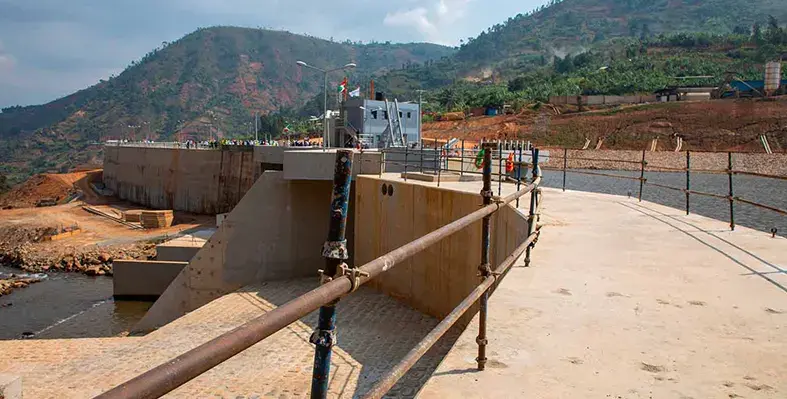President of Burundi, Évariste Ndayishimiye, has officially inaugurated the Jiji hydroelectric power station, located in the southern province of Bururi
It forms a component of the US$320mn Jiji and Mulembwe Hydropower Project, which includes associated transmission lines and substations.
Including the Mulembwe plant, set to be operational in the coming months, the two new Burundian power facilities will have a total installed capacity of 49.5MW and an estimated annual output of 235 gigawatt-hours of clean energy.
The combined output will supply electricity to 15,000 households, 7,000 businesses and 1,700 industrial facilities, providing a vital boost too for key industry sectors such as healthcare, education, agribusiness and ICT.
“2025 marks a new era in Burundi’s energy development. Just as water is essential to life, energy is crucial to development,” said President Ndayishimiye.
“I am convinced that this new source of available energy will enable new businesses to develop and transform production from different sectors.”
Funding for the project was sourced through a wide variety of multilateral institutions, led by the World Bank which provided US$149mn in financing.
The African Development Bank (AfDB) provided a further US$22mn in support, the European Investment Bank (EIB) US$36.6mn, and the European Union (EU) US$95mn.
The Government of Burundi and the Société d'électricité du Burundi (REGIDESO) also contributed US$16.7mn.
The World Bank's representative in Burundi, Hawa Cisse Wagué, said the Jiji hydropower plant and infrastructure would be transformative to the nation’s economic prospects.
“This infrastructure is like a solution for the economic and social development of Burundi. It represents a fundamental lever for improving access to energy for our populations, industrialisation, job creation and economic growth.”
During the construction phase, the project created several hundred jobs, stimulating the local economy and strengthening technical capabilities in the energy sector.
Edward Claessen, head of the EIB's regional hub for East Africa, highlighted the significance of the project’s renewable credentials, thereby reducing dependence on imported fossil fuels.
“Our funding for this project was part of the European Union's strategy to develop clean and sustainable infrastructure in Africa, and it is also aligned with decarbonisation efforts, which businesses need to grow.”
Read more:














